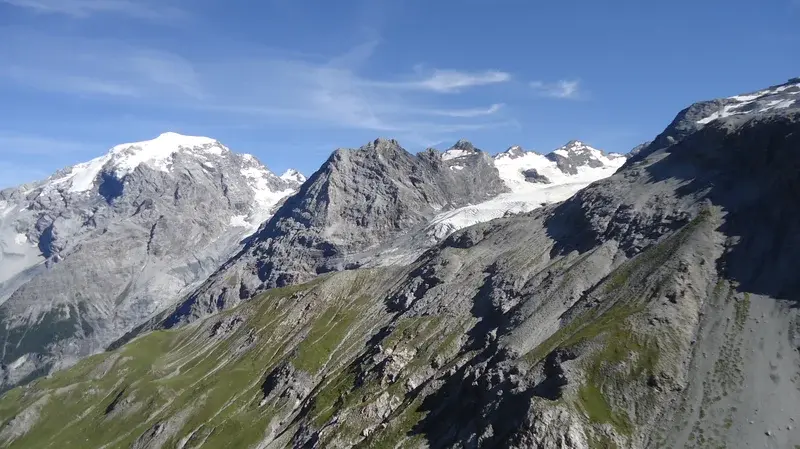The question in the title suggests that nose tends to bleed at higher altitudes. But is this really so, does high altitude cause nosebleeds? The answer is yes, so keep reading.
There are several reasons for nosebleeds that all act simultaneously when you are in high mountains. They include the following:
- Elevation.
- Cold weather.
- Low humidity.
As you realize all these effects are completely inter-related. But nosebleed is not necessarily a symptom of altitude sickness. This is a much milder reaction of our body to the combination of the effects mentioned above.

Elevation effects
In general, atmospheric pressure decreases with altitude. Roughly speaking, if it is 15 degrees C at the sea level where the pressure is 1 atmosphere, then you can expect the following pressure values with altitude:
- 1000 meters → 0.89 atm.
- 2000 meters → 0.78 atm.
- 3000 meters → 0.69 atm.
- 4000 meters → 0.53 atm.
These numbers may depend on the calculator you use, so no need to take them literally, use them just to get the general idea.
You have seen the top picture above, so this is my photo of Ortler group in the Italian Alps. This is a view from Stelvio Pass. Elevation on the summit there is close to 4000 meters, so you will definitely feel altitude effects.
So when you start climbing, this surrounding air pressure may change faster than your body reaction to it. No doubt this is more so if you use a cable car or just the car when you drive up to Stelvio pass.
As a result, initially the blood pressure in our body likely remains a bit higher than the external atmospheric pressure. This may result in blood vessels cracks and bleeding.
Cold weather effects
If you have ever been in the mountains, you have probably experienced yourself that temperature decreases with elevation.
So, how much exactly does temperature go down with elevation? Well, it depends on the source you use, there are various numbers around, but think about 5-10 degrees Celsius per one kilometer. This all depends on many factors and there can be no general data.
I myself have never measured, and it would be pintless in any case. But this is why I always have gloves and a cap in my backpack.
Now, back to the issue, a cold air does not hold as much moisture as a warm air, you will see more in the next section. Note that this is also behind the issue of a runny nose in the mountains discussed in my separate text.
Low humidity
It is known that relative humidity decreases roughly linearly with an increase in altitude, more about it you can read in a research article. So think around 4% per kilometer in average.
Due to this, membranes in the nose become dry and brittle. This is even more so if you do not hydrate enough. We have lots of blood vessels in the nose, and their membranes tend to crack and bleed.
Some mild effects of this I experience every time when I go to mountains. It is not a big issue at all, but I do register it all the time. If you blow the nose a lot or pick it, this membrane irritation is increased.
How to prevent and treat a nosebleed caused by high altitude?
First of all, from my own experience, the nosebleed is never so serious, but it may be different for you.
So if you are concerned about it, try to keep nasal membranes moisturized. There are nasal sprays on the market. You can also use some ointment inside of your nostrils, whatever you have at hand.
Also, try to avoid blowing and picking your nose. When you sneeze, make sure you keep your mouth open to regulate pressure in your nose.
Conclusion
So you have seen that pressure decreases by around 10-11% per kilometer of elevation difference. Air humidity decreases around 4% within the same elevation difference. On the other hand, temperature drops anywhere between 5 and 10 degrees Celsius per one kilometer.
All these effects combined, affect numerous blood vessels in the nose and the result may be bleeding. This is not altitude sickness, but this is indeed an altitude effect.
Thank you for reading. Check around for more texts of this type in the category FAQs. You will find a series of texts about our body reaction to elevation effects. In particular, check my text about hiking and loosing weight.
Let me know if you have questions, there is a comment box below. Subscribe to my weakly newsletter and stay informed, the subscription form is given below. Have a nice day.
Leave a Reply